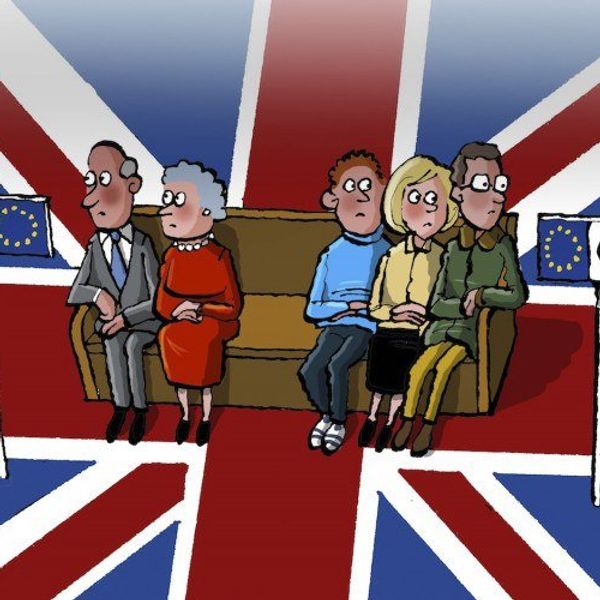United Kingdom voted to "leave" the quasi-religious, anti-nationalistic, ever-so-close union ideology that has worked for decades within the European Union on Friday, dropping the mic with BREXIT.
With only one prospect to look at: Britain becoming poorer, the nation ignored its own Prime Minister, the United States President, the governor of the Bank of England, and any wise advice to remain with the union. Instead, the country retracted towards the times of World War 2 when the Union was created in order to combat further possible nationalistic upheavals and arrogance.
History has taught that no empire could ever rule forever. Just a quick look at the Roman, Greek and even more recently British Empires reveals the flaws in that kind of unity. Post World War 2 leaders, however, sought to eradicate these flaws in the block of Western nations. Nigel Farage, the head of the anti-European Union U.K. Independence Part, has even farfetched to call it a "failed project."
Indeed, Europe has been destabilized by the shifts in the global economy, the unregulated migrant flow, and Vladimir Putin's outlying schemes for the union he was not part of. In situations as such, the "regular" individuals and the working class do turn to politicians such as Farage in the U.K. and Trump in the U.S. These then comfort them by agreeing with their cause and in turn finding some group to point fingers at. In England, this turned out to be the E.U.
“There is no point beating about the bush,” said Angela Merkel, German Chancellor. "Europe has reached a turning point, and more and more often, we encounter basic doubts." Just like how no empire lasts too long, no system is ideal. But why do we begin ideological wars as soon as one philosophy shows weakness? Instead of putting effort into destroying the system, maybe a better idea would be to fix it? Farage and Trump are strong candidates in that they can see faults in the system (not their own candidacy), but they have no solution to the real problem.
Britain will succeed to keep refugees out of its bloody island, but how will it deal with an unemployment surge, a stock market crash, a pound sterling default, and anything else that reciprocates from the breakup BEFORE Britain can actually leave the Union? And what confidence does it have that when they are finally able to leave, they will still want to?
For now, rest certain that David Cameron will be leaving his post as Prime Minister in October. However, everything else in Europe and Britain is uncertain. The exit cannot be immediate for at least another two years. In that situation, Britain would have to call upon Article 50 of the Treaty on the European Union. In turn, the E.U. would begin negotiating a withdrawal agreement. Cameron will not initiate such action, thus the future lies in the hands of the next Prime Minister. Next year, though, Europe holds the French and German presidential elections that might hold up the agreement again.
It might be 2019 or 2020 when England will be completely isolated from any responsibilities to the E.U. on their isolated island of beans and tomato sauce. It is not inconceivable that by then, other nations will follow England's example and trend with Italeave, Nethermind, or Austria la Vista.
E.U. vs Great Britain illustrated with food
Despite the uncertain future in Europe, which Great Britain is still part of, we see once again the importance of the youth vote. Officially, 72-percent of those aged 18 to 24 backed the Remain vote. The 52-percent that won the vote were led by those upwards of 65, those who have the least time to live with it. Once again, the old decided for the young that have the longest time to live with these decisions.
Millennials are a generation of hope and change, but we are continuously haunted by the decisions made by previous generations.






















